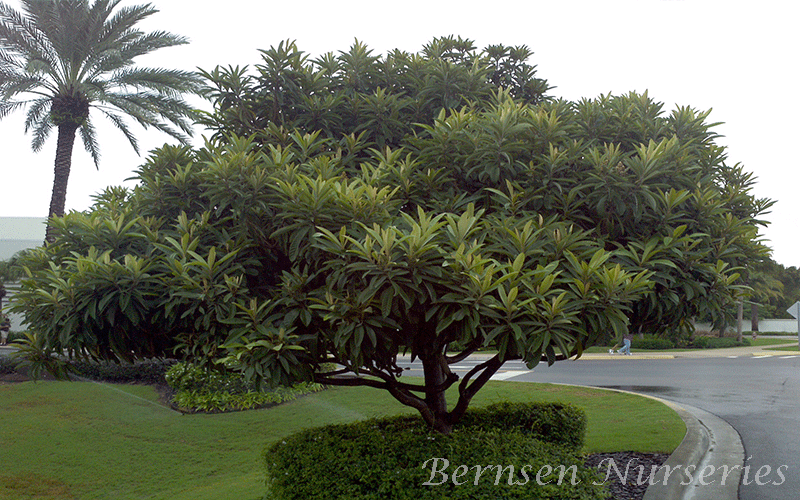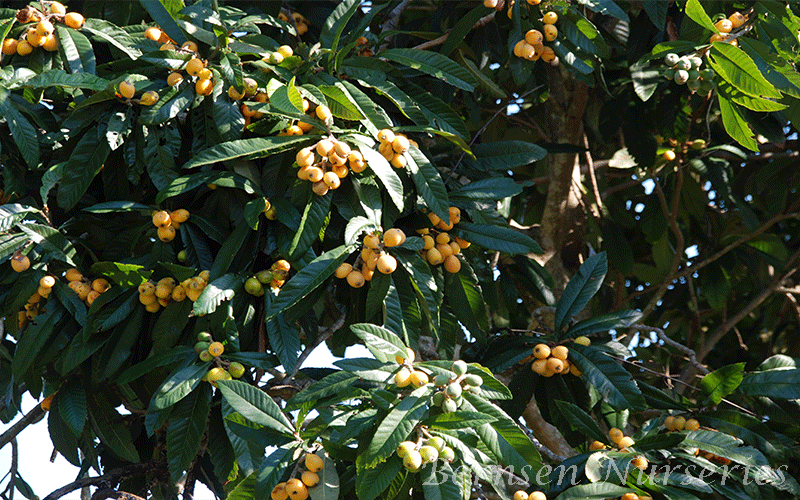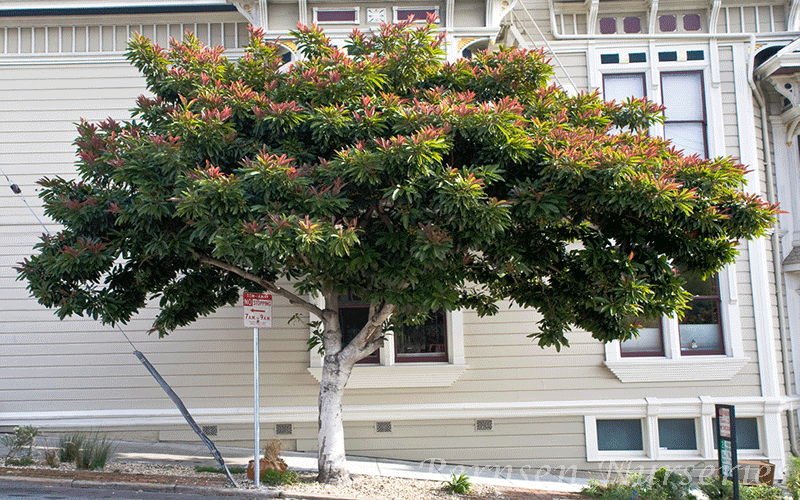LOQUAT TREE Naples
Ornamental as well as practical, loquat trees make excellent lawn specimen trees, with whirls of glossy foliage and a naturally attractive shape. They grow about 25 feet tall with a canopy that spreads 15 to 20 feet a size that is well-suited to home landscapes.
Large clusters of attractive fruit stand out against the dark green, tropical-looking foliage and add to the tree’s visual appeal.
What is a Loquat? You may be wondering exactly what is a loquat. Well, loquats (Eriobotrya japonica) are trees that produce small, round or pear-shaped fruits, rarely more than 2 inches long. Sweet or slightly acidic in flavor, the juicy flesh may be white, yellow or orange with a yellow or orange-blushed peel. Loquats are tasty when peeled and eaten fresh, or you can freeze the whole fruit for later use. They make excellent jellies, jams, preserves, cobblers or pies.
Loquat Tree Information: Loquat trees are sensitive to cold weather. The trees can tolerate temperatures as low as 10 degrees Fahrenheit without serious damage, but temperatures below 27 degrees kill the flowers and fruit. Some varieties are self-pollinating, and you can get a good yield from just one tree, but there are several cultivars that must be pollinated by another tree. When planting one tree, make sure it is a self-fertile type.
Loquat Tree Planting: Caring for a loquat tree properly begins with its planting. When growing loquat trees, you should plant the trees in a sunny location at least 25 to 30 feet from structures, electrical lines and other trees. When you remove the sapling from its container, rinse off some of the growing medium so that when you plant the tree, the roots come in direct contact with the soil. Plant the tree so that the soil line of the tree is even with the level of the surrounding soil. Water the tree twice the first week after planting and keep the soil lightly moist around the tree until it begins to put on new growth.
Caring for a Loquat Tree: Growing loquat fruit trees and their care focuses on good nutrition, water management and weed control.
Fertilize: The trees three times a year with a lawn fertilizer that does not contain weed killers. In the first year, use a cup of fertilizer divided into three applications spread over the growing season. In the second and third years, increase the annual amount of fertilizer to two cups. Scatter the fertilizer on the ground and water it in.
Water: A loquat tree when the blossoms begin to swell in spring and two to three more times when the fruit begins to ripen. Apply the water slowly, allowing it to sink into the soil as much as possible. Stop when the water begins to run off. Young trees don’t compete well with weeds, so maintain a weed-free area that extends 2 to 3 feet from the trunk of the tree. Take care when cultivating around the tree because the roots are shallow. A layer of mulch will help keep weeds at bay.




